
 2 bunches of basil
2 bunches of basilPluck the leaves from the basil and wash well to remove any grit.
1 small clove of garlic, peeled
30 g toasted pine nuts (*)
20 g freshly grated parmesan or pecorino Put the garlic, pine nuts and parmesan in a food processor and blend well. Add the basil leaves and whizz again until you are getting a thick paste.
(*) Note: toast pine nuts on a baking sheet in the oven. They tend to burn in a saute pan on the stove.
extra virgin olive oilLeaving the processor going, drizzle in olive oil until the pesto comes together smoothly. You may need to stop and scrape down the sides of the processor half way through.

Taste - sometimes the basil is too strong and a little more lemon juice may be needed to adjust the taste. Add more of any ingredient if you feel it's needed (the amounts given above are approximate - they'll depend on the flavour of the basil, the strength of the cheese, your liking for garlic, and so on). You can also add a pinch of salt if necessary.
Use this pesto stirred through pasta, as part of an antipasto plate, on baked gnocci or vegetables, and so on.
It will keep for several days covered in the fridge - just stir up and add a little more oil to thin it when you use it again.
*** Pesto can be frozen ***
If you want to freeze pesto, omit the nuts and cheese.
Tips:
Pasta with pesto is a good lesson in why Italians so often insist on adding a spoonful of pasta cooking water to pasta sauce. Try it here and you will see how creamy the pesto becomes on the pasta.
If your pesto typically turns army green shortly after you make it, you'll appreciate the beauty of this version. I
blanch the basil briefly to set the color, and I add a pinch of powdered ascorbic acid (vitamin C), which keeps the pesto from oxidizing:
Prepare an ice water bath in a large bowl, and bring a large pot of water to a boil. Put the basil in a large sieve and plunge it into the boiling water.
Immediately immerse all the basil and stir so that it blanches evenly.
Blanch for about 15 seconds.
Remove, shake off the excess water, then plunge the basil into the ice water bath and stir again so it cools as fast as possible.
Drain well.

The idea of making pesto variations had been on my mind for a while : you start from the basic pesto recipe (basil, pinenuts, pecorino and/or parmesan cheese, olive oil and garlic), and work from there, replacing some of the ingredients by their cousins, be they close or removed -- another kind of herb, another kind of nut, another kind of cheese. In this instance, I made two variations : I made a green rucola pesto, subbing rucola leaves (a.k.a. arugula) for the basil, and I used sundried tomatoes to make a red pesto.
It is colorful and tasty, it is incredibly easy to make, and it gives me the perfect excuse to buy a big and beautiful granite mortar and pestle! You can prepare the pestos ahead, and keep them on hand for an improvized mini-meal. The pestos can also be used like regular pesto of course, in pasta, as a sandwich spread, as a salad dressing...
Pesto de Roquette2 large handfuls of rucola, rinced and dried
3 Tbsp pinenuts
3 Tbsp parmesan
3 Tbsp olive oil
2 garlic cloves, peeledCombine all ingredients in mortar (preferably) or a food processor. Pestle or mix until smooth. Try a bit, and add more of any of the ingredients to suit your taste.
Pesto Rouge8 pieces of sundried tomato (packed dry -- reduce olive oil by one Tbsp if using packed in oil)
3 Tbsp pinenuts
3 Tbsp parmesan
3 Tbsp olive oil
2 garlic cloves, peeledCombine all ingredients in mortar (preferably) or a food processor. Pestle or mix until smooth. Try a bit, and add more of any of the ingredients to suit your taste.
 3 - 4 apples (red or green)
3 - 4 apples (red or green) 100 ml shelled walnuts
100 ml shelled walnuts
 salad
salad



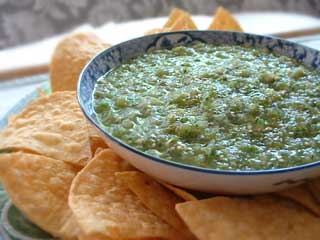


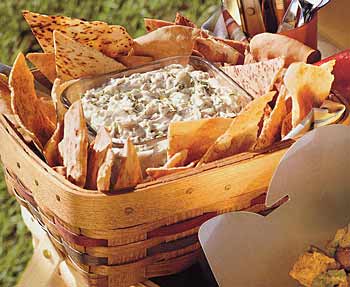

 1 1/4 cups mayonnaise
1 1/4 cups mayonnaise 
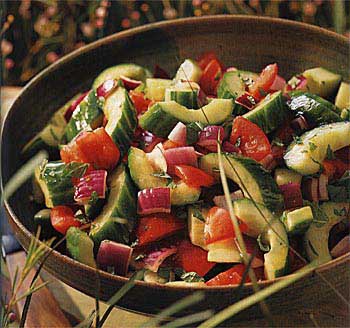

 Olive Varieties
Olive Varieties

 100 g de fatias de salmao defumado
100 g de fatias de salmao defumado 1 small Onion
1 small Onion Simmer for a further two minutes and then serve.
Simmer for a further two minutes and then serve. 

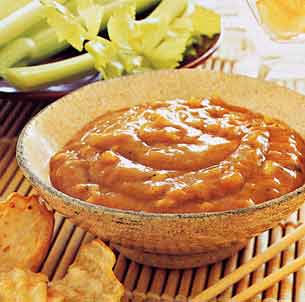


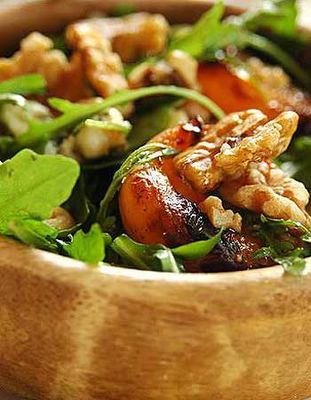

 6 tablespoons low-calorie sweetener or about 1/2 teaspoon liquid low-calorie sweetener
6 tablespoons low-calorie sweetener or about 1/2 teaspoon liquid low-calorie sweetener

 *** This sauce can be mild or well seasoned depending on the type and amount of spices added.
*** This sauce can be mild or well seasoned depending on the type and amount of spices added.


 The idea of making pesto variations had been on my mind for a while : you start from the basic pesto recipe (basil, pinenuts, pecorino and/or parmesan cheese, olive oil and garlic), and work from there, replacing some of the ingredients by their cousins, be they close or removed -- another kind of herb, another kind of nut, another kind of cheese. In this instance, I made two variations : I made a green rucola pesto, subbing rucola leaves (a.k.a. arugula) for the basil, and I used sundried tomatoes to make a red pesto.
The idea of making pesto variations had been on my mind for a while : you start from the basic pesto recipe (basil, pinenuts, pecorino and/or parmesan cheese, olive oil and garlic), and work from there, replacing some of the ingredients by their cousins, be they close or removed -- another kind of herb, another kind of nut, another kind of cheese. In this instance, I made two variations : I made a green rucola pesto, subbing rucola leaves (a.k.a. arugula) for the basil, and I used sundried tomatoes to make a red pesto.






 Classic mayonnaise
Classic mayonnaise





